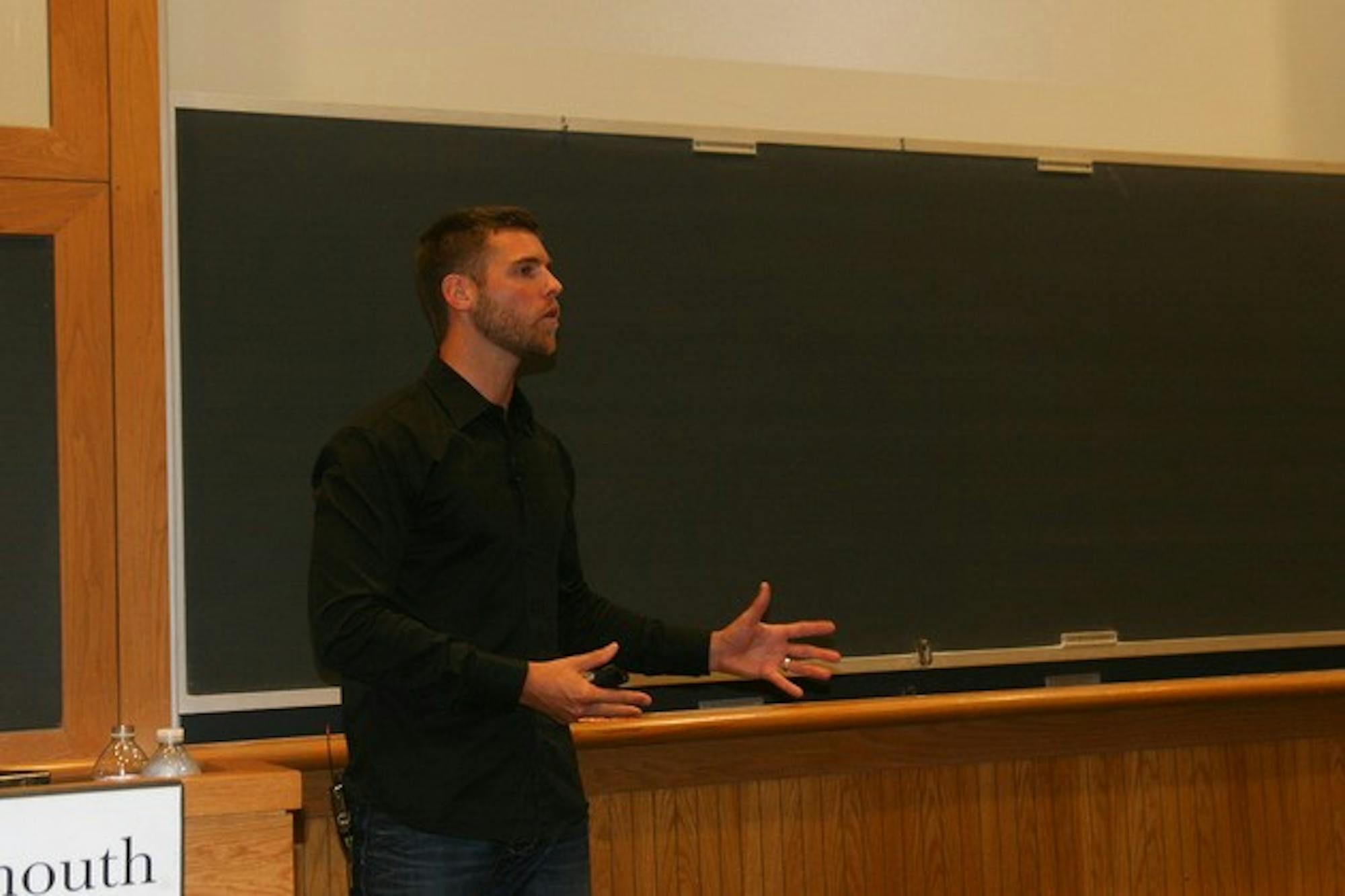In a lecture on Thursday, Scheel discussed the importance of social entrepreneurship, which he defined as people creating for-profit companies that help solve a social problem. Contrasting these ventures with attempts to create yet another program for sharing photos or finding restaurants, Scheel said social entrepreneurship can be "magical" in its ability to create tangible change. Scheel's own company, Startup Experience, is an entrepreneurship education venture that has taught workshops in 13 countries so far. Scheel said he eventually hopes to reach a million people with his workshops, and estimates that the company has already reached 15,000 individuals.
This weekend, Scheel is bringing his program to Dartmouth, where he will conduct a two-day workshop designed to simulate the process of creating a start-up company. The over 80 attendees will divide into small groups and create ideas for products to help under-resourced communities.
"It's going to be a lot of hard work but hopefully also a lot of interesting things that you can use going forward," he said.
Although past participants have seen their companies acquired or received over $20,000 in funding, this weekend's participants will vie for prizes ranging from Dartmouth sweatshirts to a dinner with College President Phil Hanlon. The Rockefeller Center will make limited funding available to participants who apply, program coordinator Thanh Nguyen said.
On Saturday evening, each group will present its idea to a panel of judges. Tuck School of Business professor Gregg Fairbrothers, who teaches entrepreneurship-related courses, will serve as a judge.
"I have a hard time seeing a company come out of a one-and-a-half day exercise from scratch," he said. "At the very least, I'd like to think students come out of it with a good sense of some of the challenges inherent to coming up with an idea that's sustainable."
While many people create excuses to justify inaction, only those who "get off the couch" succeed, Scheel said. Although they may not have experience or funding, confidence and ambition are the most important aspects of starting a successful venture.
"As an entrepreneur, you need to be delusional to a certain extent," he said. "You need to be naive and believe that you can be the one to create that next Facebook or the next great nonprofit."
The traditional career has long required sitting in a cubicle for 50 weeks a year, with little opportunity for creativity or problem solving. This type of workplace can cause people to lose their natural ability or willingness to change the status quo, he said.
"The cavemen, the cavewomen back in the Stone Age, these guys were the real entrepreneurs," Scheel said. "If they did not act entrepreneurial, they would die."
While the stakes have since changed, the same skills can help people today on a personal and societal level, he said. From lighting up homes in the Philippines to solving agricultural problems in India, Scheel said he has seen ventures have a powerful impact.
Riley Ennis '15, who was asked to judge but was unable to due to time conflicts, said the workshop presents entrepreneurship as overly appealing when it is in fact a difficult career choice requiring many sacrifices and resulting in many failures.
Founder of Mitosis, a club for campus entrepreneurs, Ennis is a recent recipient of the Thiel Fellowship, which provides grants of $100,000 for students to leave school for two years to pursue technological and scientific start-ups. Ennis said the most important part of this weekend's program will be the connections and ideas people create, not the content of the workshop's lessons.
"It's a really fine line between teaching entrepreneurship and actually having people do it," he said. "I don't think you can stick people in a room and have them become entrepreneurs."
Many of the participants are sophomores who spent last summer in Washington, D.C., as First-Year Fellows, and were required to plan and sign up for the workshop as a follow-up to the program. The Rockefeller Center's First-Year Fellows program has a sophomore summer component every year, which often consists of a campus lecture and program.
Marty Gatens '15, who was a First-Year Fellow last summer, said he does not believe companies will come out of the session, but students may leave with new skills and ideas.
Workshop participant Gurkaran Singh '15 said that while he does not expect to create a start-up, he hopes this program will teach him beneficial skills. He said he is fascinated by the connection between profitability and social benefit, and hopes to explore the topic further this weekend.
"I think the more you do events like this and run through the ideation process, the better set up you are for the future," he said.
Rockefeller Center director Andrew Samwick said this program is the start of a focus on social entrepreneurship at the Rockefeller Center and is aligned with the center's existing goals.
"The part of it that's not new is that we're looking for ways to bridge the gap between theory and practice," he said, citing research and internship programs.
Samwick added that sophomore summer is an ideal time to create a new venture, since students are at the midpoint of their time at the College. With the ability to take off-terms during junior year, Dartmouth students have more flexibility than students at other schools.




